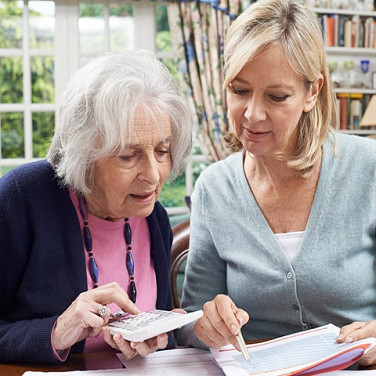Elder abuse is an unsettling reality that can cast a dark shadow over the lives of vulnerable residents in residential aged care settings. Recognising, reporting, and preventing elder abuse is not only a moral imperative but a crucial step toward creating safe and compassionate environments for our elderly loved ones.
Identifying signs of elder abuse:
-
Physical indicators:
- Unexplained bruises, fractures, or injuries.
- Sudden weight loss, dehydration, or malnutrition.
- Inappropriate use of restraints or medications.
-
Emotional and behavioural changes:
- Unexplained changes in mood, withdrawal, or fear.
- Agitation, anxiety, or depression.
- Reluctance to speak openly about their experiences.
-
Financial irregularities:
- Unexplained withdrawals or transfers of funds.
- Changes in financial documents without the resident's knowledge.
- Missing personal belongings or valuables.
-
Neglect or isolation:
- Poor personal hygiene or living conditions.
- Social isolation or restrictions on communication with family and friends.
- Lack of assistance with daily living activities.
Reporting mechanisms:
-
Internal reporting:
- Encourage staff, residents, and visitors to report any suspected abuse to the facility's management or designated authorities.
- Ensure that the facility has a clear and confidential reporting process in place.
-
External reporting:
- Report suspected elder abuse to the Aged Care Quality and Safety Commission or the relevant state or territory regulatory body.
- In emergencies or instances of immediate danger, contact local law enforcement.
Preventive measures:
-
Staff training and education:
- Provide comprehensive training programs for staff on recognising, preventing, and reporting elder abuse.
- Foster a culture of empathy, respect, and open communication within the facility.
-
Regular monitoring and oversight:
- Implement regular monitoring of residents' well-being and living conditions.
- Conduct unannounced inspections and audits to ensure compliance with care standards.
-
Family and community involvement:
- Encourage family members and friends to actively participate in the care of their loved ones.
- Foster community engagement to create a network of support and vigilance.
-
Transparent communication:
- Establish clear communication channels between staff, residents, and their families.
- Address concerns promptly and transparently to build trust and confidence.
Addressing elder abuse in residential aged care requires a collective commitment to creating a safe and nurturing environment for our elderly population. By recognising the signs, reporting suspicions promptly, and implementing preventive measures, we can work together to ensure that our seniors receive the care and respect they deserve in their later years.
Nursing Home Plus is here to help you choose a care home or facility best suited to your needs. Do not hesitate to contact us on the following number: 0230 608 0055 or fill out this form.

